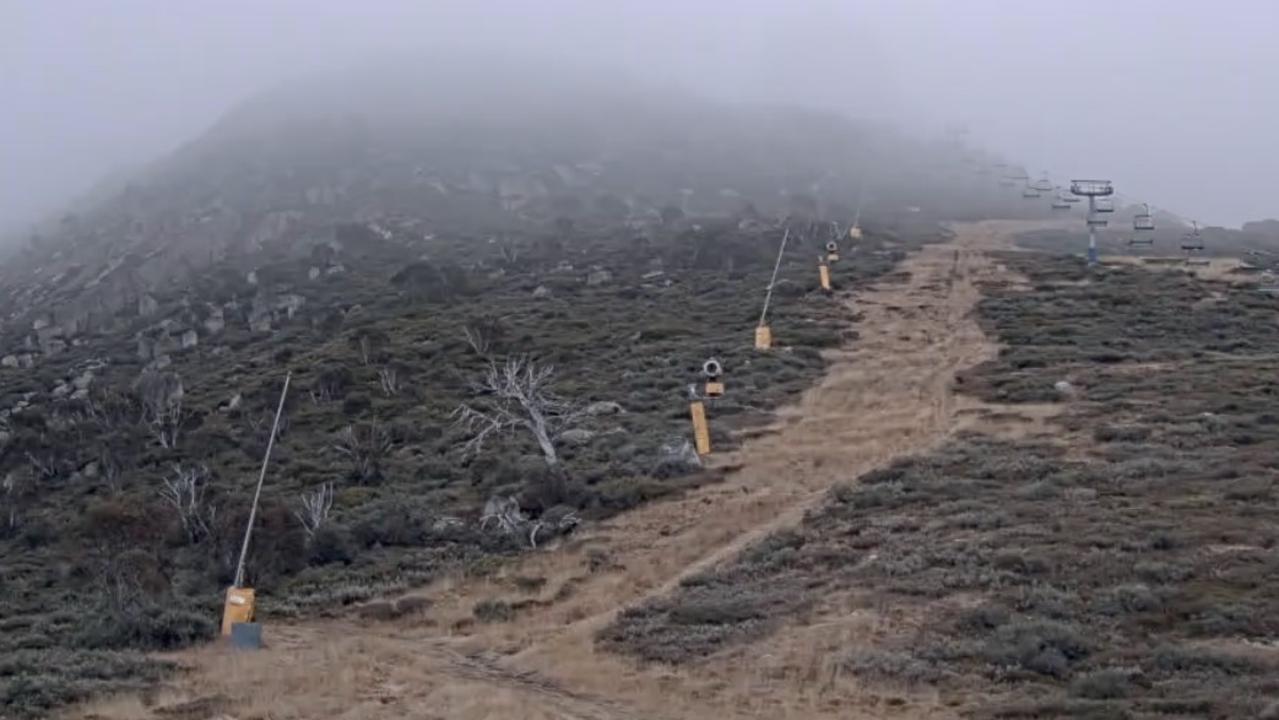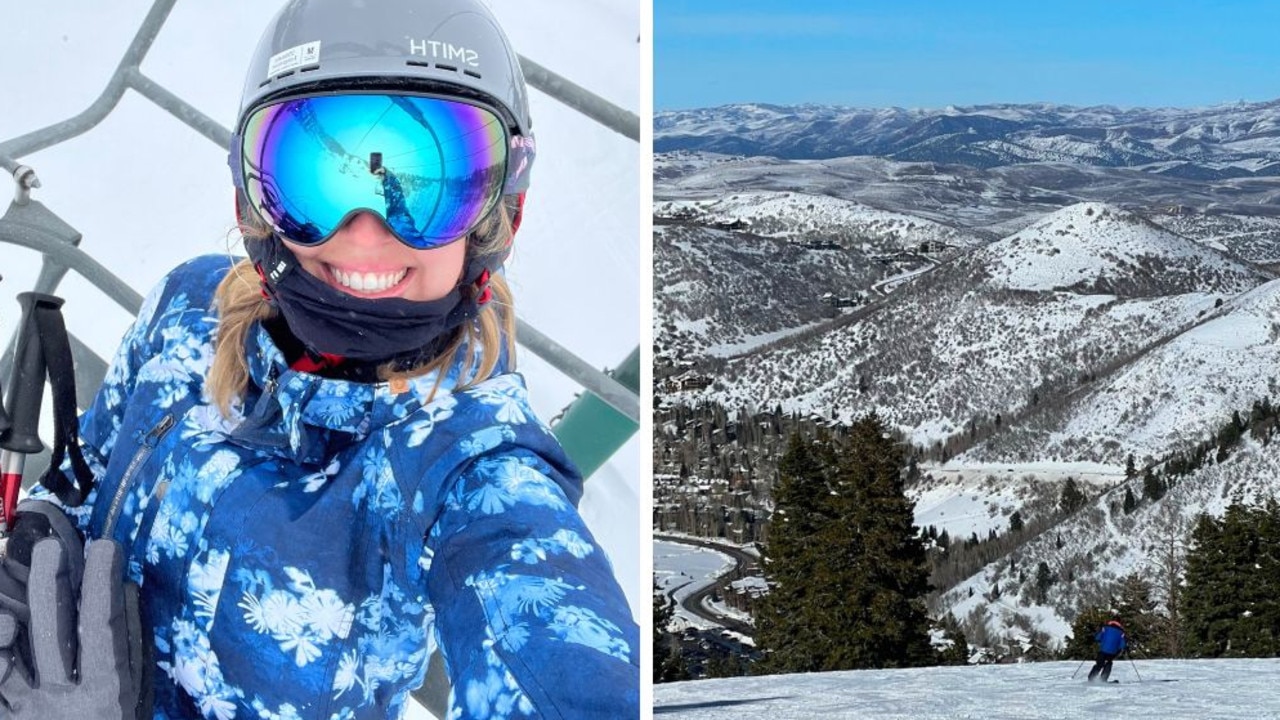Everest sherpa calls out ‘the dirtiest camp I have ever seen’
Climbers across the globe have been left shocked by footage filmed recently on Mt Everest which captured a truly hideous sight.
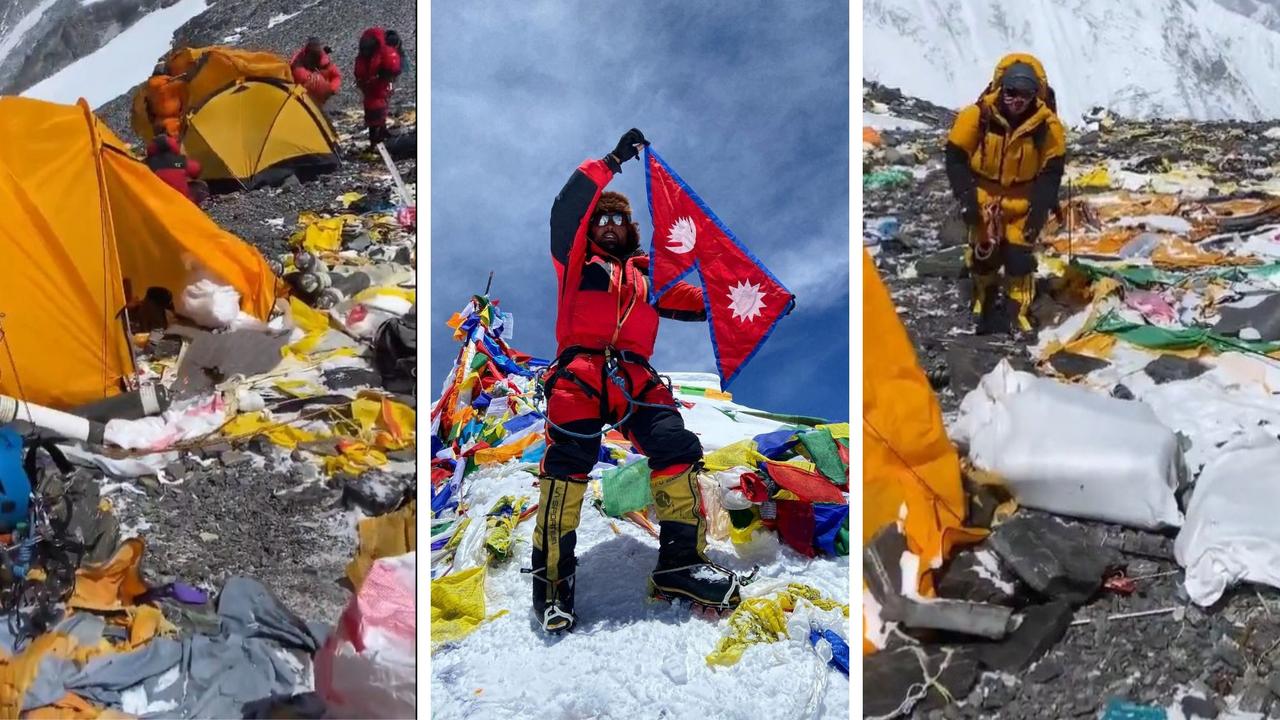
A sherpa has shared shocking footage exposing the filthy condition climbers leave campsites in while scaling Mount Everest.
Tenzi Sherpa, an experienced guide on the world’s highest peak, took to Instagram last week to share footage of the mess.
“The dirtiest camp I have ever seen,” he captioned a video of Camp IV - the last stop before the summit.
The clip shows a group of climbers passing through what appears to be an abandoned camp strewn with mountains of unwanted climbing material.
He said the mess was an assortment of tents, empty oxygen bottles, steel bowls, spoons, sanitation pads and paper.
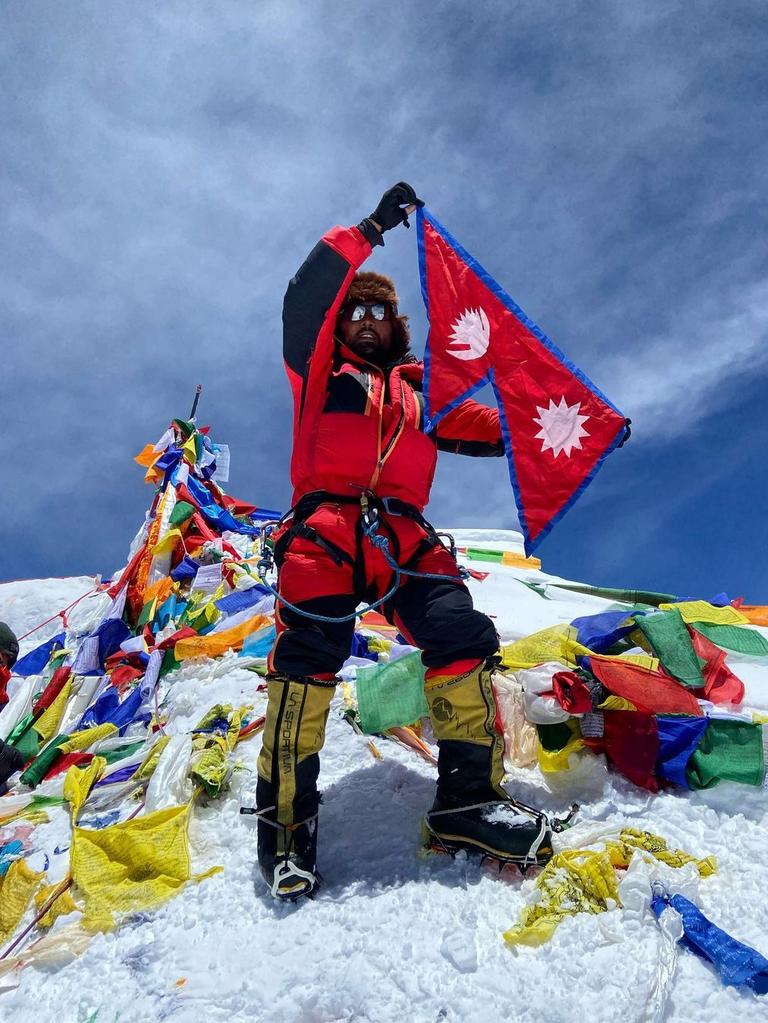
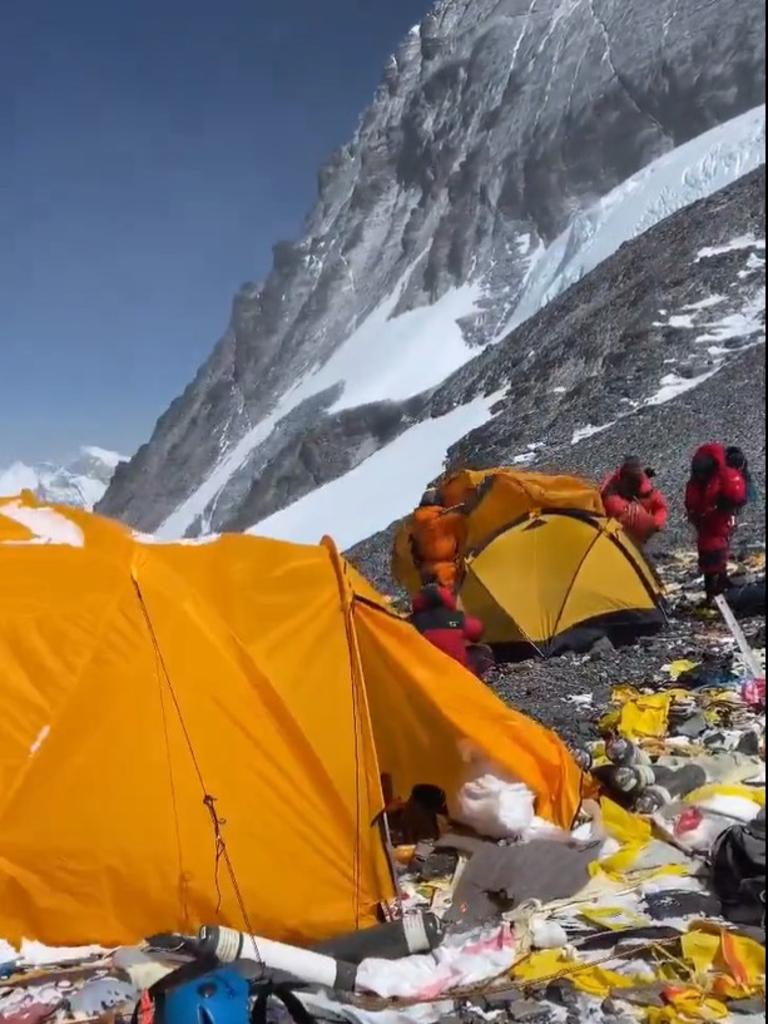
The sherpa took aim at lucrative climbing companies for the mess, claiming he’d seen similar acts in the past.
“I feel so sad every time cause I have seen many times doing expedition groups, and companies cut (their) companies logos and leave all the tents for the rest,” Tenzi said.
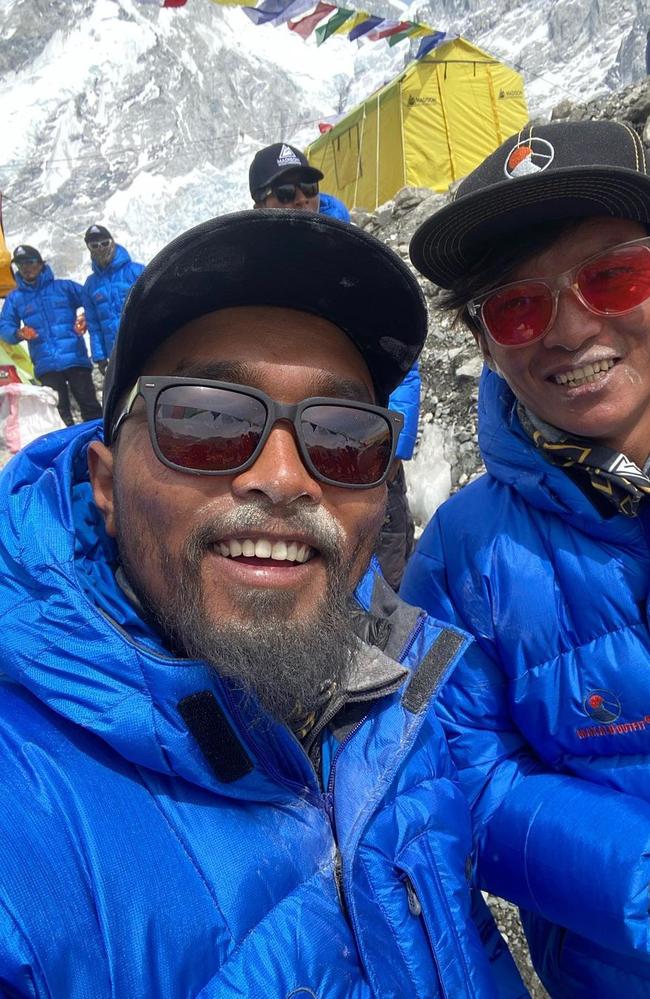
“Clean mountain campaign has been begun from many years ago, although the campaign did a good effort to clean (the) mountain … companies leave their trash on the mountain, so it’s going to be hard to clean.
“I would like to request to the government to punish companies who leave their trash on mountain … it's a huge problem we all facing.”
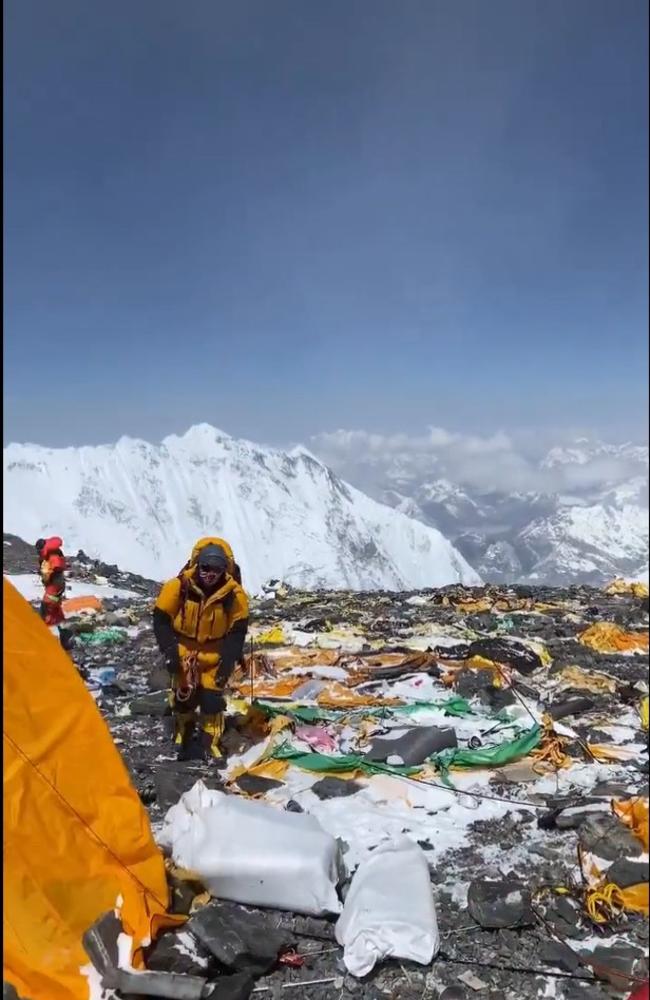
The find comes amid what will end up being recorded as the deadliest year on record for the mountain, with 11 deaths recorded for the season so far.
Among them, Australian climber Jason Bernard Kennison died after becoming unwell on the peak earlier this month.
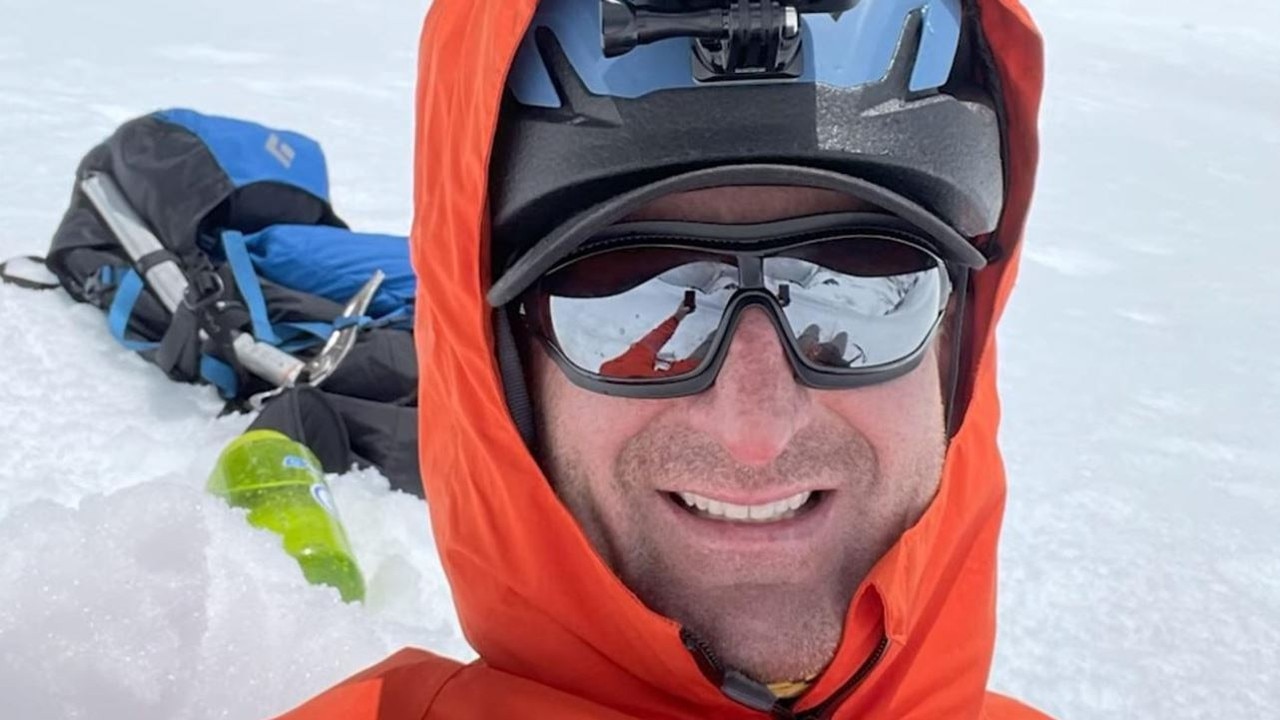
The South Australian, who had been living in Perth, became “unresponsive” at the summit and was brought down to the Balcony area below the peak, Asian Trekking chief Dawa Steven Sherpa told AFP.
Calls for clean up strategy
Tenzi’s calls were echoed by members of the global climbing community with the video widely shared online.
Publication Everest Today labelled the accumulation of trash “disheartening” and called for harsh penalties for littering climbers.
“It’s high time we address this issue with urgency and commitment. Let’s demand stricter regulations, enforcement of clean climbing practices, and effective waste management strategies,” it wrote.
The world’s highest peak is facing a mounting challenge as the influx of climbers leads to increased waste and debris on the mountain.
In recent years, various cleaning campaigns have been undertaken, but their effectiveness and available resources have varied greatly.
One of the most significant cleaning efforts was launched in 2019 and 2021 by Nepal’s Department of Tourism and the military.
Taking advantage of the tourism downturn caused by the Covid-19 pandemic, they collected 10 tons of garbage and retrieved the remains of four dead climbers from Camp 4.
When human beings don't spare even Mount Everest from dumping their garbage and plastic pollution. Truly heartbreaking. #stopplasticpollution#MountEverest#everest video by @EverestTodaypic.twitter.com/zuuorrkADF
— Supriya Sahu IAS (@supriyasahuias) May 29, 2023
Another notable initiative in 2019 was the Eco Everest project, spearheaded by Dawa Steven Sherpa and generously sponsored.
The team successfully removed two tons of garbage from Everest and other nearby peaks.
He noted that the wind had torn apart many tents, and little effort was being made to recover them or their contents.
“My sherpas saw a bunch of tents [that] got ripped to shreds by the wind. It can be safely assumed that no efforts will be made to recover these destroyed tents and their contents,” he told adventure publication ExplorersWeb after the clean-up.
This year, Everest has seen a record number of climbers granted permits.
Nepal issued a staggering 478 climbing permits for the current season, surpassing the previous record of 408 permits set in 2021.
The number of individuals scaling the mountain this season is even higher when including Sherpa guides and support staff.




